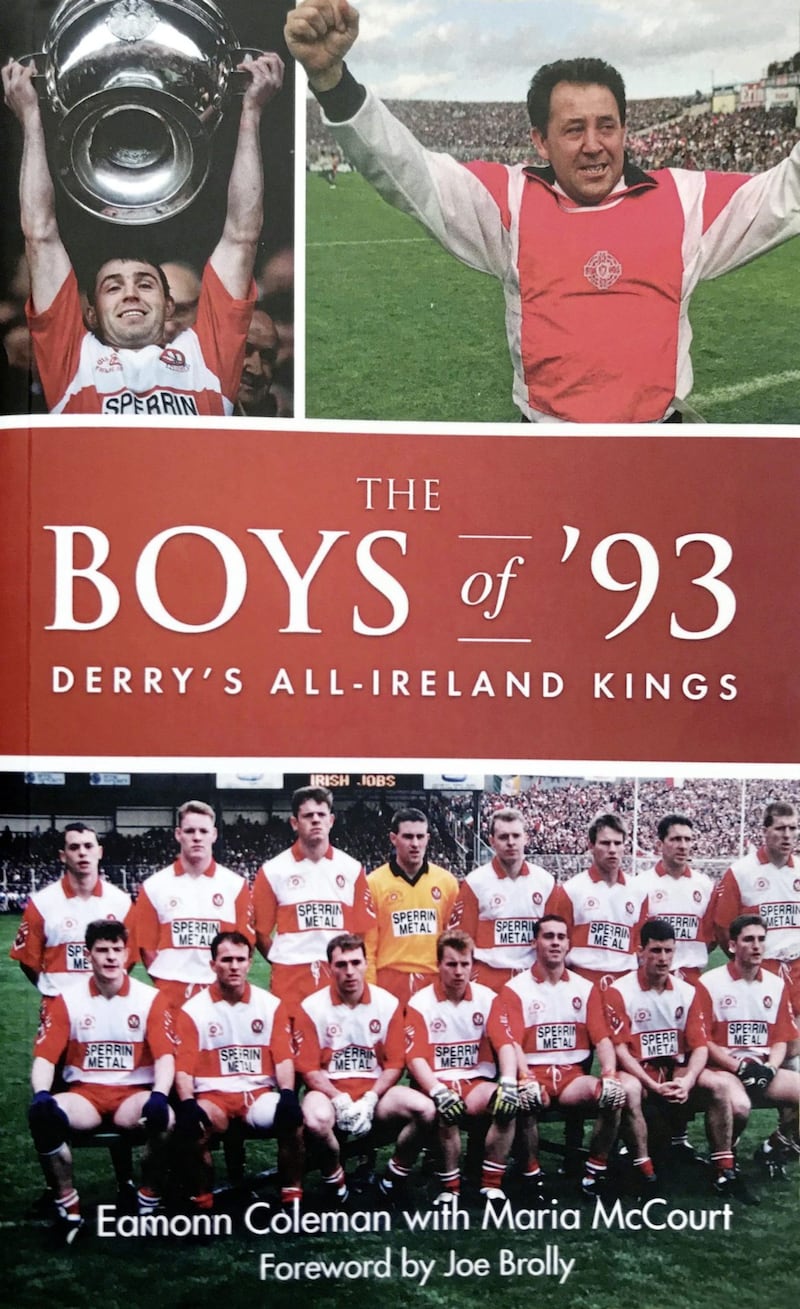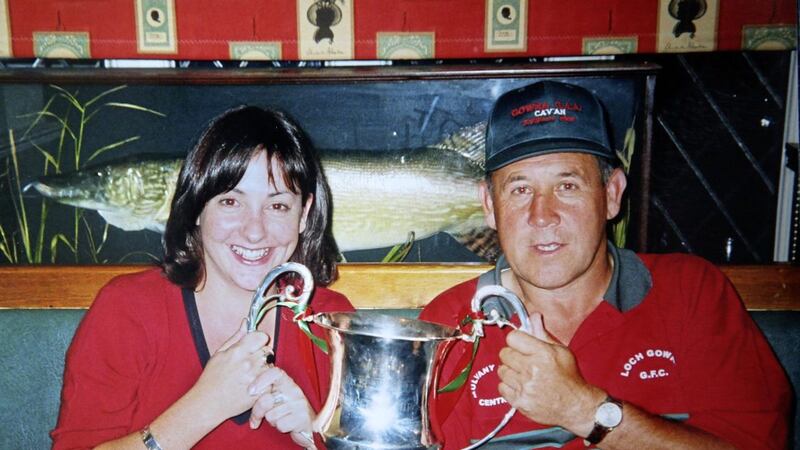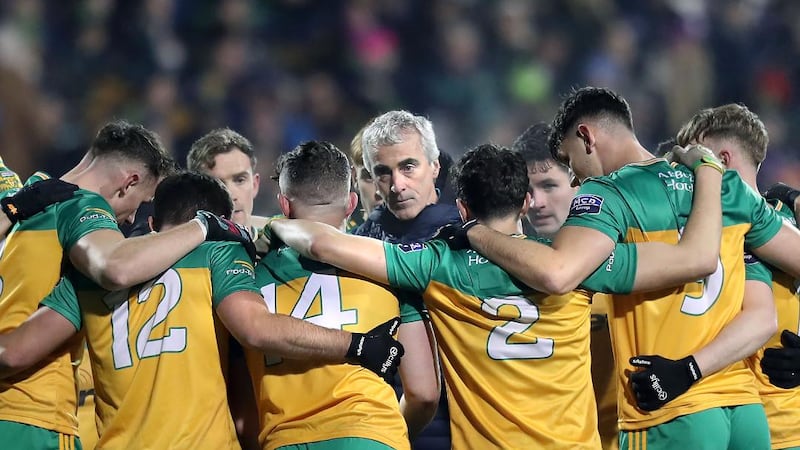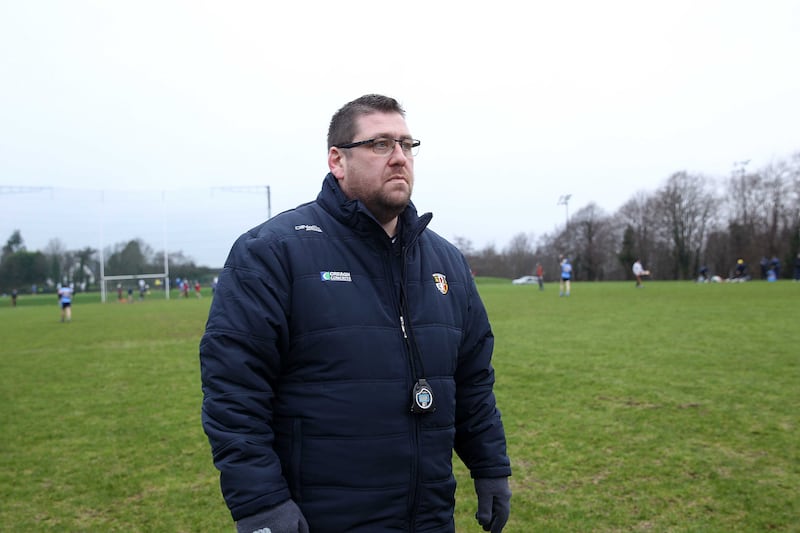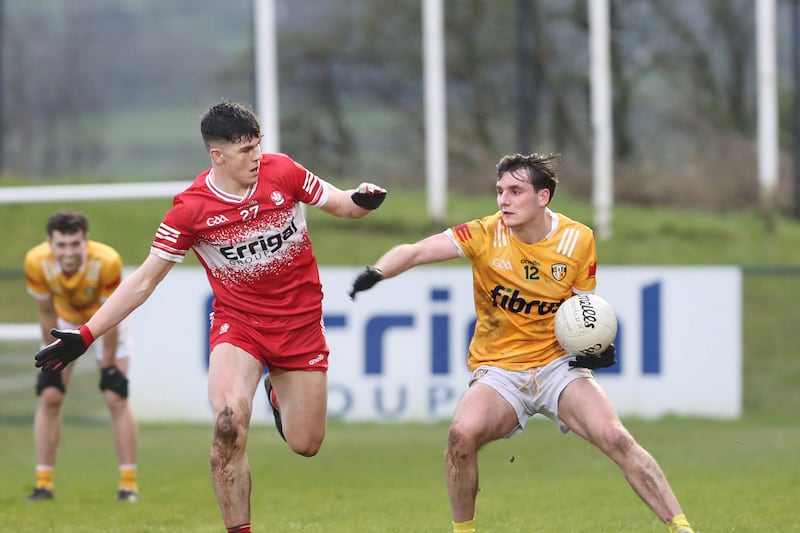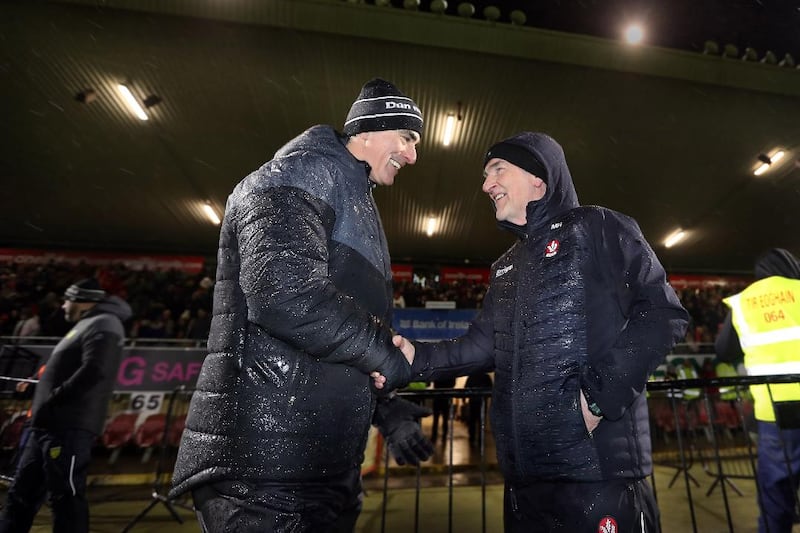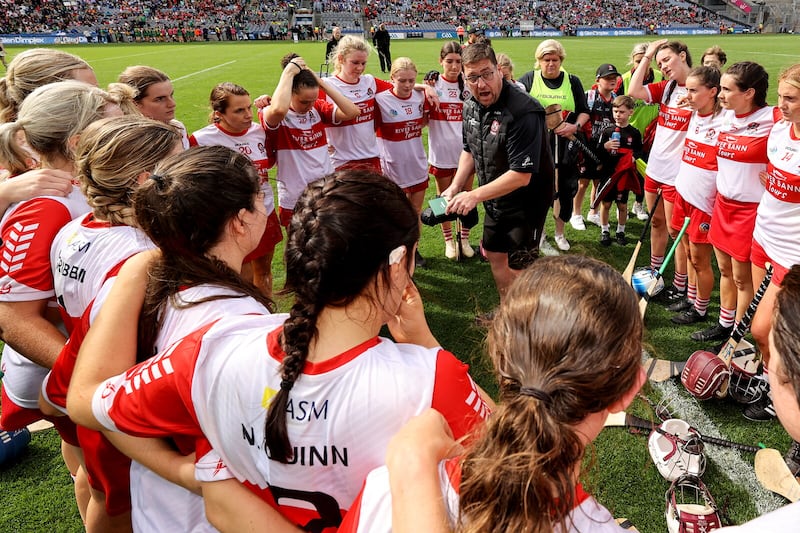THERE is an image of me in the GAA world, and even in the smaller circles around me, as a tough, distrusting, money man; a manipulator of the media and my opponents, a closed and secretive individual whose own family have been known to say: ‘He’d hardly tell himself what he was doing, in case he found out about it himself.’
It wasn’t always so and in large part, it isn’t true but in 1994, I learnt the hardest lessons of my life and swore then that I would never fall to the same mistakes again.
I had had a brilliant time in Chicago: me, Tohill, Kieran McKeever, Enda Gormley and Gary, who’d all gone out to St Brendan’s, being allowed to transfer for the summer.
The American championship wasn’t knockout like Ulster, so other men would come out to America as they become available.
There were home-based teams but all the big stars were from Ireland, and there was a lot of Southern men there too, living close to each other, playing football and having the craic.
After the disappointment of the Down game, for me it was a relief.
Eamonn Burns came out to join us around July and mentioned to Tohill the rumblings he’d heard in Derry about moves to get me out. Naïve? Jesus when I think about it now… We laughed, took it as a joke and carried on. It never even entered my head a second time.
The Tuesday before I was due home, the county chairman Harry Chivers rang me in Chicago to ask was I letting my name go forward for selection for another year as the Derry manager. I said I was.
It was Thursday evening when he called me again and these were his exact words: ‘I always get the dirty jobs to do.’
It never fizzed on me for a second. ‘I have to tell you Eamonn, you didn’t get the Derry job.’
Still nothing – it was like auto pilot.
‘Who got it?’
‘I’m not allowed to say.’
‘Ok.’
That was it. Standing in an apartment in Chicago, thousands of miles from home. It couldn’t be right. Five minutes passed, ten minutes.
What is this? Anger set in and I lifted the phone. I still hadn’t fully clicked on but knew I had to do something.
Were they trying to get rid of me just like that? Is that it? Is that me done? I called a friend at home. I had to let people know what was happening.
‘Phone RTÉ’s Brian Carthy in Dublin and tell him what has happened. They’re not going to sweep this under the carpet.’ So, the news was on the airwaves in Ireland before anyone in Derry had been told – before Gary knew, before any of my family knew.
Arriving at Dublin airport on the Sunday morning, Liam Hayes, the former Meath player and a friend of mine at the time, picked me up from the airport.
‘Did you hear who got the Derry job?’
‘Nobody’s got it’, I said, still stupid about what was going on.
‘Mickey Moran was appointed at quarter past eleven last night.’
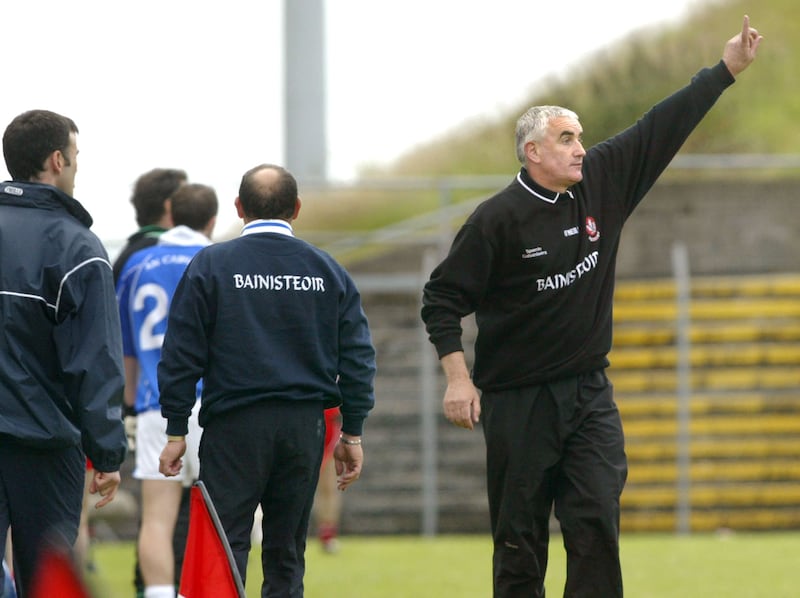
Former Derry manager Mickey Moran (right) and then Cavan manager Eamon Coleman during a game at Celtic Park in 2004. Picture by Margaret McLaughlin
I was gutted. Stunned. What is this? What’s going on here? Mickey, who I’d worked with for four years and who I would have trusted with my life. Mickey, who the year before the All-Ireland had threatened to resign after a row with the county secretary Patsy Mulholland.
Patsy Mulholland had jacked the job in for about three months and Mickey was going to resign too.
Mickey who was persuaded to stay after I told the county chairman Harry Chivers, ‘If he goes, I go.’ I had stood by him. He didn’t stand by me.
It was hard to take in and it was hurtful to take in but bits of the jigsaw finally started to drop into place.
I was still convinced there was no way the county board could justify sacking me. I’d done nothing wrong.
But it was obvious there had been plenty of work going on behind backs and my men, who I’d backed to the hilt, had deserted me for they were still in and I was gone.
If there were any problems, my men were going to phone me. I challenged Harry Gribben. He’d lost my phone number. Jim McGuigan knew ‘what was going on back there’ but knew ‘it had nothing to do with me’. He couldn’t remember saying that.
Mickey had sat and told me he would only stay on as coach if I stayed on as manager.
The players challenged him at a meeting two weeks later in Toome. He was just ‘keeping the thing going until we get Eamonn reinstated’.
They gave him a fortnight to speak to the county board but when Henry Downey went back to see him, he admitted he wanted the job.
- New book reveals how gardai quizzed Derry board official after Henry Downey punched in '93
There was nobody wanted the job in 1991 but there was plenty wanted it in 1994. They knew the team was there to win another All-Ireland and they were looking to do it without me.
I might have been the only Derry manager to have won an All-Ireland but for me it was all about the players.
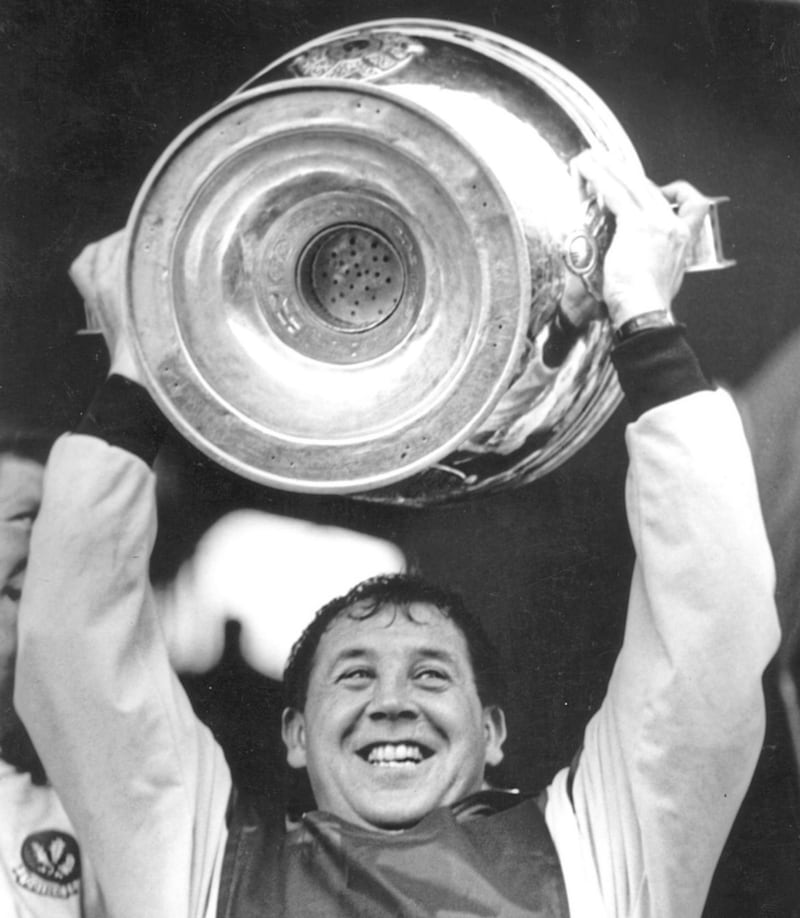
It was always about the players and me backing them with McGuigan had just proved it.
It actually didn’t bother me either way who was right or wrong in the matter but as a manager, sticking by the players was my job; that’s who I was there to look after and anybody who says any different is a fool.
I was got rid of because player power was raising its ugly head in Derry again and the county board men, who felt the success of Derry should anchor around them and not the players, were prepared to axe me, happy to axe me, to make sure the uprising was trampled.
I remembered back to 1990 and my first meeting with the county board after being approached to take the Derry job.
The issue of player power had been raised that night. In the late 1980s, Tom Scullion, Phil Stewart and one of my footballing heroes, Jim McKeever, had formed the management team of a Derry side beaten in the semi-final of the 1987 All-Ireland.
- Coleman: I was sacked because board didn't like players having power
After that defeat, the three had resigned.
However, it was widely accepted that the grumblings of the players in the dressing rooms had removed them from their posts.
‘We let those boys down’, said one of those men the evening I took the job. ‘There’ll never be player power in Derry again’, he pledged. They saw me as adding weight to the power the players had begun to exercise in not letting McGuigan onto the bus, in standing by their captain. It was their own mistake. If the board had dealt with the McGuigan mess, the players wouldn’t have needed to flex any muscle whatsoever. But I was never a favourite with the county board anyway having spoken openly in the press about the financial sacrifices made by myself and other GAA managers.
At one stage, I’d been pulled aside by my selector Harry Gribben, in Spain, where we had gone after winning the All-Ireland. Harry, in his wisdom, had warned me off being friends with and getting too great with the players. After ten years as a manager and a successful one at that, I thought it was a load of bullshit and jealousy.
I had nothing in common at all with the men who filled the boards and councils. Since boyhood, being a football player was all that filled my life. When that finished, managing players was the next best thing. For me football was all about a green field, nothing to do with jumped up little nothings, full of their own self-importance in committee rooms across the country.
The players refused to train under Mickey Moran and at the start of the National League, refused to tog out. There was to be a training session on the Thursday night. Not having training to be at, I was in Dessie Ryan’s pub in Ballyronan and a man named Patsy Forbes came to see me. A Tyrone man living in Magherafelt, he was a big GAA man and would have done a lot of fundraising for Derry. He said there was a meeting in Toome and then there was to be training at Greenlough but there was rumblings that the players weren’t going to train.
‘We’ll have to sort this out’, he said. ‘Will you meet Mickey Moran this evening?’ My words to Patsy was, ‘I’ll meet him at anytime as I have nothing to hide’, and I never heard another word about it.
The loss of the one job that meant everything in the world to me was bad enough to take but it went deeper than that, far deeper, and yes, deeper even than football.
When, five weeks after my sacking, the county board eventually agreed to meet me, the four reasons given by the board members present were laughable, never mind pathetic.
They spoke about my giving a few nights to the Kildress club in training; speaking in public about my expenses from the board; trying to make money from a committee outside the county board and taking players to America. My first move into management had been with the Tyrone club Kildress and I’d been asked to give them a hand training during 1994 – a few nights here or there. I’d been happy to do it.
The second of their reasons related to a question and answer session I had taken part in in Donegal when I had been asked was it true that I received £200 a week expenses from the Derry county board. Laughing, I had replied, not at all. I got £50 expenses and that was it.
The third was my approaching the supporters club in September of 1993 when I asked would they be willing to compensate me for loss of wages for the week before and after the All-Ireland Final. I had already asked the county board for an additional £50 for each of those two weeks and they had refused. The move was more to embarrass the county board into at least acknowledging the fact that it was impossible for me to work at that time but I was expected to bear the loss of income. They must have dug deep to come up with that one, I thought.
As for the American crap, to even utter that I had deliberately lost a match, given up another shot at an All-Ireland for Derry, let Sam go to Down just to get to America – bullshit all of it and they knew it. If I had failed as a manager then sack me for failing as a manager. I’m a big boy; I could’ve handled that.
But after forty-seven games in charge, forty-two wins, a National League title and the county’s first ever All-Ireland, they couldn’t say that.
What I can never forgive though is the spineless way they went about it in their eagerness to take Derry’s glory. What they did was to leave a cloud of suspicion hanging over me and through that, over my family.
The rumours were thick, not only in Derry but across the country. People that wouldn’t know me were thinking, ‘He must have done something terrible’, ‘There’s no smoke without fire’.
Time and again I called on the county board to make public the charges against me, to lay it on the line why they sacked me and they never did. They refused because there were none and the only way they could disguise their actions was to direct the attention towards me. There was nothing else they could do.
They knew, and more importantly the players knew, I had done nothing wrong. That’s why the players were so staunch behind me. But the board underestimated the team, and the bond between them and me. They didn’t realise how close we were. I was like one of them; we would have talked about anything, craiced about anything, oul’ chat and bad chat about what they’d been up to. They thought they could step right into that but instead they shattered it and the whole thing fell apart.
Before that meeting at a hotel in Claudy, the players were still refusing to train, so Brian McGilligan, Henry Downey and Kieran McKeever went to meet the county board about half an hour before I was due in. They wanted me reinstated but the county board got their way.
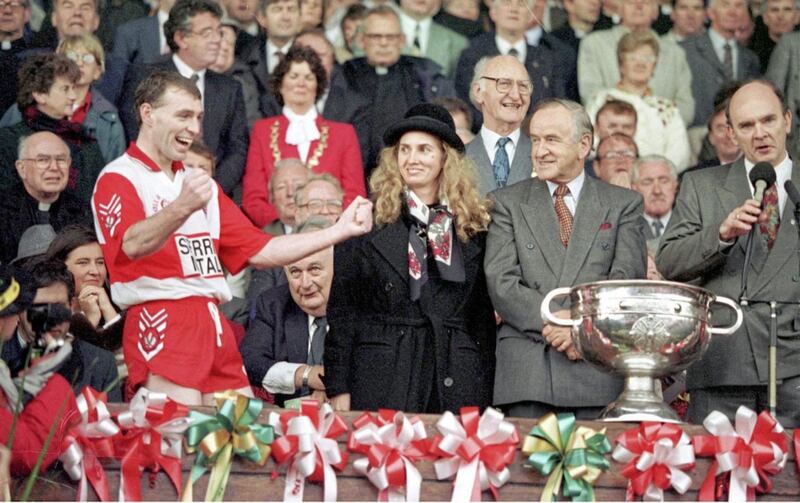
I knew it was over. I knew what had been done so I held a meeting with the players in Ballymaguigan.
Time had gone on, meetings followed meetings, there’d been protests by the players and bad craic in the press but those jumped up little nothings had got their way and I was really done as Derry’s manager.
I told them to go back, said Derry was bigger than Mickey Moran or myself or anybody and if it was me, I’d go back and play.
They didn’t want to budge and some were more vocal than others. Damien McCusker, Enda Gormley, Fergal P., Gary, Johnny McGurk, Henry Downey, Jonathon Kelly, Damien Cassidy, Dermot McNicholl, no players wanted to go back. It was a long, emotional meeting and it took it out of the lot of us but they finally decided, one goes back or nobody goes back.
They were still that team. Enda Gormley and Damian McCusker were adamant they wouldn’t do it but Brian McGilligan said he agreed with me and they should all go back together. I remember then Gormley, getting all reared up asking, ‘I wonder Brian, will we all be together again as Champions in the heat of Clones?’
They never were.
The Boys of '93: Derry's All-Ireland kings will be available in shops from tomorrow. Launches will take place on Friday, September 14 at Waterstone's in Belfast (6.30pm) and in Ballymaguigan on Thursday, September 20.
